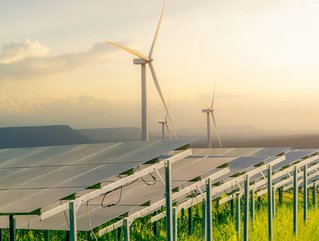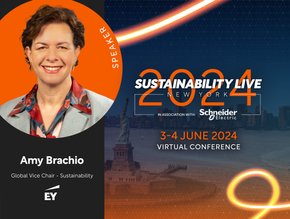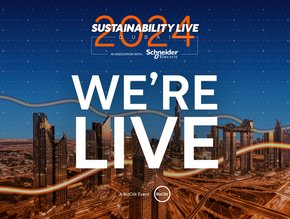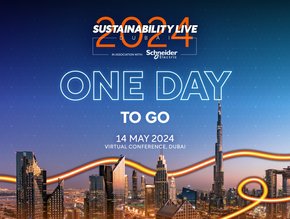Sustainable learning: Paving the road to a greener future

Rising pressure to reverse the climate crisis is being felt across the globe, with personal views on sustainability and environmental impact now being carried into the workplace.
As the drivers behind the conversation, millennial and Gen Z employees are allowing their views to influence their careers – in a recent Yale survey, 51% of 2,000 business students said that they would accept a lower salary to work for a more environmentally responsible organisation. In fact, employees are now more willing to leave their jobs if they feel an organisation’s ESG commitments are poor, otherwise known as “climate quitting”.
Businesses, however, feel that commercial objectives take priority during economic hardship – and some would go as far as paying regulatory penalties to avoid investing in sustainability initiatives. Whilst employees are willing to let their morals reshape their careers, employers are somewhat reluctant to turn plans into actions. By positioning commercial objectives as a higher priority, companies enable the misconception that investing in sustainability does not positively influence the workplace.
Cornerstone’s 2023 People and Workplace Trends Report revealed that employee demand for corporate responsibility and workplace sustainability learning content increased by 100% from 2021 to 2022. The key discovery to come from our research is that the demand is specifically for self-directed content.
People are clearly motivated to learn about sustainability in the workplace, so it’s now up to employers to listen and provide the resources that will support their workforce in implementing sustainable changes.
Sustainability content is divided into three topics
Cornerstone’s learning content is succinctly broken down into key areas that align with the UN’s 17 sustainable development goals. The first topic is environmental practices, such as affordable and clean energy, responsible production and consumption. The second topic covers social concerns, like wellbeing and gender equality. The third focuses on governance responsibilities, such as economic growth and innovation.
It's important to consider how sustainable content should positively influence employees. Good content does not exist simply to educate people as to what these topics are and what they mean – it’s also about encouraging the workforce to think about how they can make a positive impact. Good content should educate, inspire and motivate.
Employee drive will create lasting change
As the demand for sustainable educational resources is already widespread, organisations can harness this motivation and use it to their – and their employees’ – advantage. According to recent research from ENGIE Impact, 69% of organisations believe that improved sustainability capabilities will drive their competitive advantage to a considerable extent.
Businesses that implement sustainability content can therefore use it as a selling point to attract and hire new talent who share like-minded views. It comes down to meeting moral expectations to create a positive societal impact – and the first step in change is education.
However, companies must consider transparency in their motives behind implementing sustainability initiatives. Employees are aware that commercial objectives are factored into business decisions, but ticking off a box on the ESG list is not enough. People want their employers to lead by example, and so leaders should want to implement sustainability content to educate and positively reshape the workplace.
Sustainability intersects with wellbeing
Cornerstone’s research predicts that the demand for sustainability learning content will completely overtake other learning priorities in the coming years. A key factor as to why increase in popularity will occur is because sustainability intersects with other workplace trends, such as employee wellbeing.
Environmental concerns have a direct link to climate anxiety and depression – as a result, more than 93% of employees have said that acting on the climate crisis at work is important to their wellbeing.
Reversing our environmental impact – and encouraging better employee wellbeing – is a long-term investment. Small changes create quick wins, but organisations must focus on the bigger picture, too. Sustainability learning content encourages discussion around climate anxiety between employees and employers and helps inspire a more optimistic outlook.
The price of inaction
Businesses can no longer ignore the effect their activities and decisions are having on the environment whilst employees take conscious steps to decrease their impact. 67% of the planet’s population are now convinced that the consequential costs of climate change will be far greater than any investment.
Companies may be hesitant to devote time, money, and energy to sustainability initiatives, but it signals that a business is mindful of its environmental impact, and is serious about reducing it. Educational resources are easily implementable and are a great way to encourage corporate mindfulness and inspire eco-friendly choices on an executive scale.
Businesses should also be keeping a finger on the pulse of ever-changing ESG laws; investing in sustainability-focused learning content will ensure that they are actively listening to, and complying with, new and updated regulations. With these key points and facts in mind, there is no longer any excuse for organisations to avoid implementing sustainability initiatives. By taking action to reverse the climate crisis, businesses are ensuring that the hard work isn’t left to the employees – after all, we’re all in this together.






